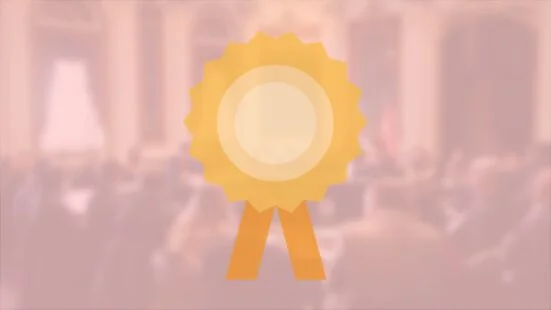Earlier this week, Engine representatives participated in the U.S. Copyright Office’s Roundtable discussion on the impact and effectiveness of section 512 of the Digital Millennium Copyright Act (DMCA). The DMCA—and the safe harbor provisions of the bill included in section 512— provide a framework to grant online service providers limited liability protections for copyright infringement stemming from user-generated content.
Statement on European Parliament’s Vote on Copyright in the Digital Single Market
Primer: Copyrights
Primer: Patents
Engine Files Amicus in HP v. Berkheimer
Engine filed an amicus petition to the Supreme Court of the United States on Tuesday, November 13th to urge the court to consider the case. In our brief, we argue that the Federal Circuit’s decision in the case conflicts with the Supreme Court’s ruling on patentable subject matter eligibility.
Statement on USPTO Director Iancu’s Speech to the Eastern District of Texas Bar Association
Last week, United States Patent and Trademark Office Director Andrei Iancu gave a speech to the Eastern District of Texas Bar Association, where he implied that patent trolls were not a real problem faced by innovators, but instead just a “narrative” made up to scare away innovators. Not only is this factually inaccurate, but it is troubling that Director Iancu would ignore the overwhelming data showing that low-quality patents have led to a rash of abusive patent litigation directed towards small companies and entrepreneurs over the past decade.
USPTO Weakens Important Program for Fighting Patent Abuse
One Year After TC Heartland, Texas NPEs Migrate to Greener Pastures
A year after the Supreme Court’s unanimous decision in TC Heartland LLC v. Kraft Food Group Brands LLC, however, Marshall may be returning to the normalcy of tumbleweeds and prairie, as NPEs who once filed there flock instead to other jurisdictions.
Engine Statement on House Judiciary Committee Oversight Hearing of USPTO Director Iancu
Engine Statement on Recent Attacks to our Patent System
Startups Strongly Oppose The STRONGER Patents Act
Today, Reps. Steve Stivers (R-OH) and Bill Foster (D-IL) introduced a House version of the STRONGER Patents Act (S.1390), which would hobble the U.S. Patent and Trademark Office’s internal review system for challenges to overly broad, obvious patents and overrule decades of Supreme Court decisions on patent issues, exposing technology users to increased litigation.
Panel Round-Up: Design Patents and Defining the Article of Manufacture
The panel discussion, “Design Patents and Defining the Article of Manufacture – One Year Later,” was moderated by Julie Samuels, President of the Board at Engine Advocacy and Executive Director at Tech:NYC. The expert panel also featured Charles Duan, Senior Fellow and Associate Director of Tech and Innovation Policy at R Street Institute; G. Nagesh Rao, a 2016 USA Eisenhower Fellow and former Patent Examiner and Senior Policy Advisor at the USPTO; and Matthew Levy, former Patent Counsel at the Computer and Communications Industry Association (CCIA).
2017 Year in Review: Patents
While patent trolls remain a problem, in 2017, startups started to see some relief from nefarious patent litigation. The decrease in patent litigation abuse stems largely from meaningful Supreme Court rulings and the continued implementation of the Leahy-Smith America Invents Act (AIA) at the United States Patent and Trademark Office (USPTO).
Congratulations to the new United States Patent and Trademark Office Director
Startups Weigh in on NAFTA Negotiations
Engine Statement on President Trump’s Pick for United States Patent and Trademark Office Director
Engine looks forward to working with President Trump’s for nominee Andrei Iancu for the position of the Director of the United States Patent and Trademark Office (USPTO). As a non-profit advocacy and research organization that supports startups, we understand what an important position the Director of the USPTO is to protecting the innovation ecosystem.
Engine to Testify before House Judiciary Committee on Bad Patents
HBO’s ‘Silicon Valley’ tackled an issue that’s all too familiar to startups: The threat of frivolous patent litigation
Engine Supports Vishal Amin's Nomination to Intellectual Property Enforcement Coordinator
Engine Welcomes Supreme Court Ruling in TC Heartland Case
Today, the Supreme Court delivered a blow to patent trolls by unanimously reversing the Federal Circuit’s decision in TC Heartland v. Kraft Foods Group Brands LLC. The high court ruled that defendants in patent cases can only be sued where they are incorporated or have a regular and established place of business. The decision will make it significantly harder for patent trolls to file lawsuits in jurisdictions that patent-friendly but otherwise unrelated to the claims at issue—most notably the Eastern District of Texas, where almost forty percent of patent cases were filed last year.
























